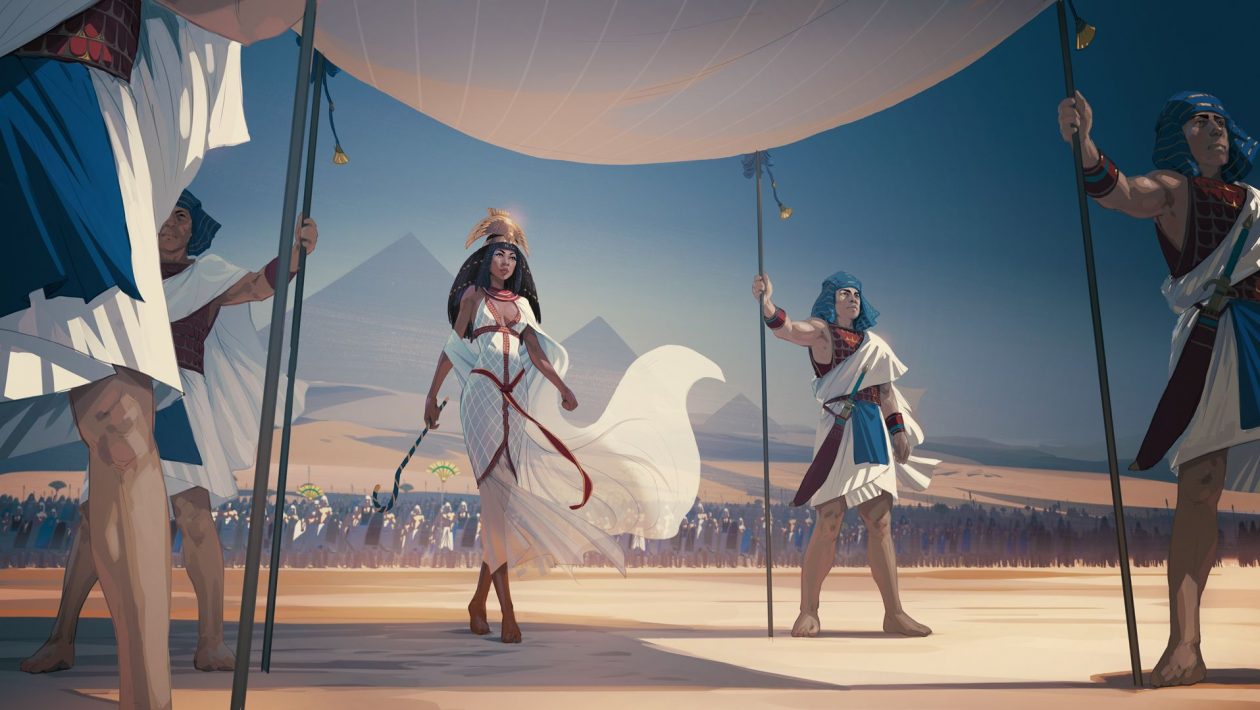Let’s get from Humankind -apkrig beta
Humanity. He must be told that this species had come a long way from bouncing with a flint behind the hairy ass of a mammoth. Sure, we can blame him a lot. The Leaning Tower of Pisa was designed by a completely sober architect, the devastation of the ecology of one blue, not a green planet, or that even after thousands of years, simulation in the penalty area did not eradicate football. But if you look around two or three times, you can say that the modern and clean cities, cars, planes, high-speed trains, computer technology – and art and culture were definitely worth the few tricks. What would it be like to lead the history of, for example, the nation of octopuses Cthulhu, sock monsters or uFOs with eight legs and six butts, try another game – and now get ready for a spectacular ride through the history of nations and cultures that go down in history. None of us are here forever, but all the more so he should make sure that “something” survives…
Open Dev Lucy – a test demo of a new 4X strategy from the Amplitude Studios team, known as the authors of Endless Legend, offered one carefully prepared script. The creators wanted to collect feedback from players on the game mechanisms that make their Humankind title original, although a very familiar experience for Civilization players, so that they can hone the settings of individual parameters, user interface, help and other necessities. Although this scenario had one map ready (without procedural generation) and limited to only five of the eight ages that nations will go through in the final version, it simply did great. Four finishes with different strategies only encouraged the hunger for the final version, which should, if all goes well, see the light of day in April 2021. Humankind is a gem – and we will now say why…
Contents
The whole game for the Romans? Kdepak…
Although the resemblance to Civilization might seem great and in a way binding, Humankind looks at history from a slightly different perspective. Empires arose and disappeared over the centuries – the power of the Egyptian pharaohs was replaced by Roman peace; the Frankish Empire, the Holy Roman Empire, and Humankind reflects this in a way that is extremely interesting in design. So the player initially enters the map of the world with a Neolithic tribe of nomads who search for food on the map, hunt and gather knowledge, and then establish the first settlement. From here, the story of not one nation as in Civilization begins, but many cultures. Every period like antiquity, the Middle Ages, the modern era and the like has goals that the player fulfills, and he can enter each with a different civilization. The Assyrians and Babylonians, for example, will be replaced by the Greeks, and at the moment when it is time to launch a naval expansion, a little Viking bloodthirst will come to the rainbow.
Impressions from Gamescom 2019
The change of direction is characterized by the characteristics of individual cultures – some are focused on building and developing cities, others on trade, others on culture or, of course, warfare. This changes the preferred way of obtaining winning stars and points of fame for a large “empire competition,” changes the units used and special buildings, which together with monuments and relics of the past remain on the map, creating an interesting visual and functional mix. It’s one of the most challenging moments when the culture selection screen appears: the player is euphoric about completing a section of the game and, as a reward, is offered a crucial choice for further moves. Design-for-one and exactly in the spirit of the winged sentence of Sid Meier (designer of Civilization) that a good game is a series of interesting decisions.
Star realms
The abbreviation 4X includes a wide range of activities. From humble Neolithic beginnings, the player will soon be dealing with technological and social development, building towns and villages, skirmishes and shops with his neighbors, as well as the movements of armies. From Endless Legend, the game maintains a division into individual provinces, in which the player first establishes small bases, which he can (but also does not have to) turn into large cities and develop through buildings inside and individual neighborhoods on the global map (a concept adopted in the last in the sixth part successfully the Civilization series). The number of buildings and neighborhoods seems to be unnecessarily large – but the player has to deal with the fact that it is not realistic, but actually not effective, to build everything in every city. Once he begins to think strategically with regard to the available raw materials and the possibilities of individual regions, his empire will develop much better. Large projects such as a holy place of pilgrimage or wonders of the world (in the usual line-up led by pyramids, famous cathedrals and temples, etc.) are then shared by more cities and the player must accumulate quite a lot of resources in order to excel over other empires. First, the influence that will allow him to start the project at all, and then the production, which “jams” a few cities or even the whole empire, but the result is exceptional construction and eternal glory.
Cultural development: crossroads of thought
As in other respects, in the cultural development of the player’s empire society, Humankind emphasizes an interesting choice that will influence the further course. Two mechanisms work side by side – the player must “come up” with a certain idea (for example, how to deal with land ownership, slavery, freedom of religion, etc.) and then a choice can be made between two variants, each with its advantages and disadvantages. This shifts the player’s empire on guidelines, for example, according to the degree of liberalism. The importance of the global focus was not revealed much by the demo, but deciding between variants is fun. The player feels that he has meaning, and once in a while it will brighten up the course of the move.
Competition between nations can also be won through other measures. Stars marking success and transition to other eras bring development – founding cities, occupying provinces, but also gaining influence, money, discovering new technologies or success in battles. You can never be a leader in everything, and that’s also the only thing right. Thus, judicious choice of culture for a given era can help a lot to increase performance and, as a result, reach points of fame and history.
You give us coffee, we give you horses
The functioning building and economic part of the game is sympathetically complemented by very clear diplomatic screens, which are actually a class better than those in Civilization. The player can easily find out what agreements he has concluded with individual nations, AI proceeds very realistically in an effort to get the most out of mutual trade, information sharing or concluding alliances. It is also good to see the injustices of countries (for example, when one empire occupies another province it has taken a liking to, when its province is under the influence of your culture or, conversely, you under the influence of a foreign religion). Applying such injustice can also lead to territorial gains in a non-war way, and it is time-consuming entertainment that makes sense in the context of other game mechanisms. In addition, Humankind and the players will show the will of their own inhabitants to start the war and the same mood of the other party, thus eliminating the annoyance of the moments when AI started the war despite agreements and the player did not know what went wrong.
“60 different cultures will appear in the game, which have grown over the ages, learned and inspired each other. Multiculturalism is a central motive for us.”
William Dyce, designer
The combat system copies the proven from Endless Legend, it will be a matter of personal preference whether you like it or not. I’m not a fan of his, but my approach to playing 4X is also that I often try to avoid warfare. What’s the problem: battles take place on a separate screen, armies numbering a few units are tactically deployed on a hexagonal map, and in a few minutes the skirmish is solved in a style not unlike any other classic, Heroes of Might and Magic. For myself, I would prefer automatic calculations on a game map or a system similar to the last parts of Civilization. But for those involved in battles, Humankind may be more likeable by going deeper and allowing for maneuvering and unit capabilities.
Legitimate ambitions
After 25 hours of careful testing, Open Dev Lucy shows that Amplitude Studios didn’t exaggerate when they talked in the developer diaries about their most unambitious project to date and how they would apply the experience gained from the Endless series. Humankind is really a very ambitious, beautiful looking and interesting game in all respects. The embodiment of the “one more move and I’ll go to sleep” syndrome associated with the side thoughts of “well, but in three moves the cathedral will appear.” The prepared scenario impressed with the variety of game mechanisms, use of different cultures, well-crafted and functioning diplomacy and clear control and ease of entry into the game for beginners.
We can only look forward to the end of April 2021 and believe that one of the great strategy games – Humankind – will be added to the memorable achievements of human civilization such as electricity, space probes, the Internet and multilayer toilet paper.



